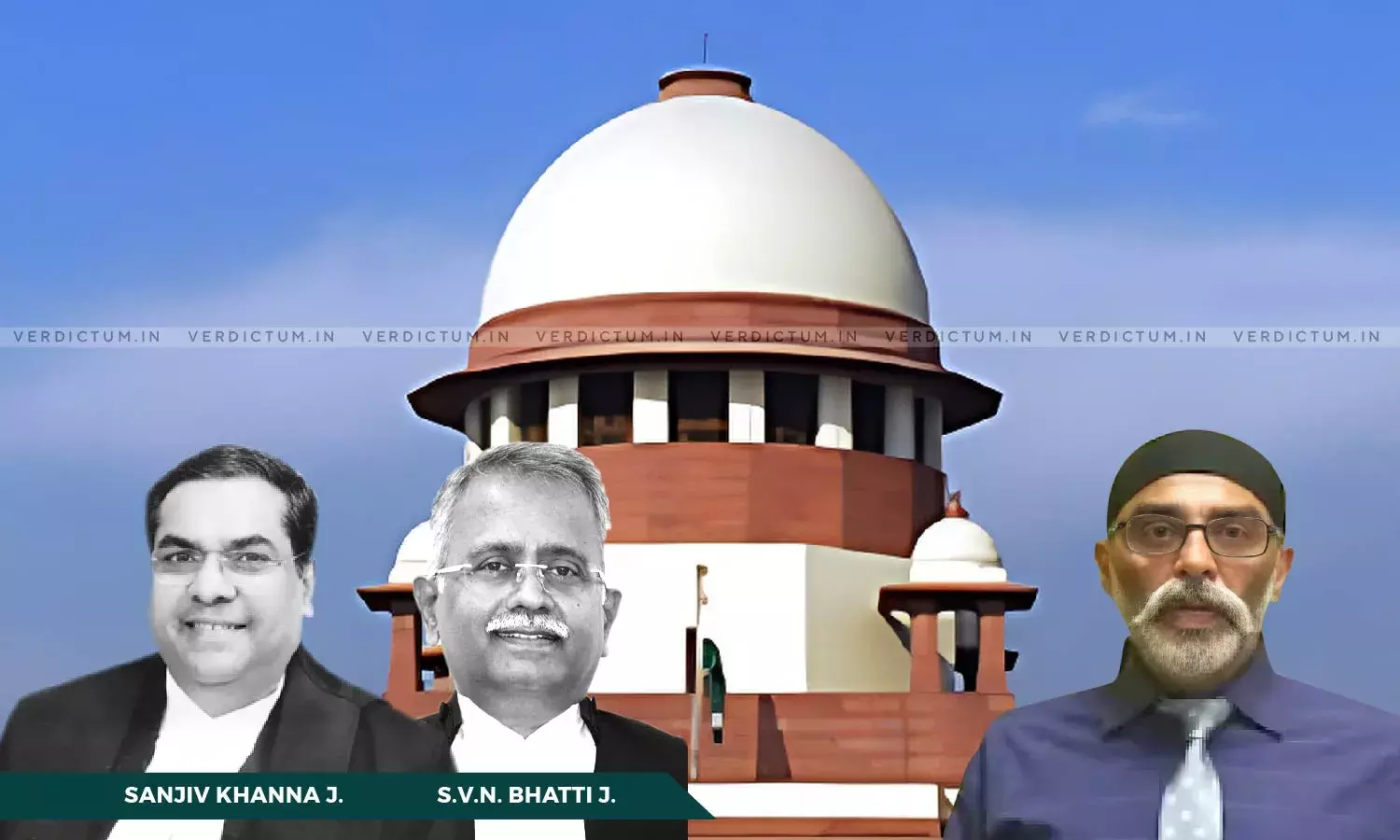Supreme Court To Hear Plea On Behalf Of Man Accused By USA Of Conspiring To Kill Gurpatwant Singh Pannun; Plea Says He Was Forced To Eat Beef In Czech Custody
The Supreme Court on Friday adjourned a habeas corpus petition filed on behalf of Nikhil Gupta (Indian National), who is accused by the United States of America of conspiring to commit murder of an alleged Khalistani terrorist Gurpatwant Singh Pannun. The bench, however, adjourned the matter with much reluctance since it was not inclined to entertain the petition. The matter will now be heard on January 4, 2024.
Gupta who is allegedly detained in Prague, Czech Republic, through the petition, seeks the Government’s intervention for him to be released.
In the petition, it is asserted that the events spanning over 100 days of solitary confinement, have given rise to grave violations of his fundamental rights. As per the averments, he was not shown any arrest warrant during the initial detention and had found himself in the custody of individuals purporting to represent U.S. interests. He further claimed that he was subjected to forced consumption of beef and pork during his detention in Czech custody, which was a direct violation of his Hindu religious beliefs. Furthermore, he alleged that he was denied consular access, the right to contact his family in India, and the freedom to seek legal representation.
A bench comprising Justice Sanjiv Bhatt and Justice S.V.N Bhatti at the outset had asked to approach Courts in the country where he is detained.
Senior Advocate Aryama Sundaram appeared on behalf of the petitioner.
Sundaram submitted, “Today we don’t even have an extradition order. We do not know what is happening”.
“Mr Sundaram, you will have to go to the court concerned, which is located outside India”, said Justice Khanna in response.
While submitting that he is not asking for adjudication of the issue on merits, he said, “My problem is this, there is no translator, there is no order…”.
Then the court enquired who filed the petition before the Court, to which Sundaram informed that his "Next Friend" had filed the petition.
“The person who is detained has not given his own affidavit. He will not be able to…”, said Justice Khanna.
Then Sundaram went on to state, “For any Indian citizen, Ministry of External Affairs through the Ambassador there assist, in at least finding out what is the status…”.
“It is for them to decide, we will not interfere in that…you are capable of taking care of yourself. It is an extremely sensitive matter for the Ministry of External Affairs or for that matter any Ministry to come in. It is for them to decide…”, said Justice Khanna.
In the present matter, as per the averments, Gupta (aged 52 years) was illegally detained by the Czech Authorities pursuant to a criminal indictment filed on June 13, 2023 at the United States District Court, Southern District, New York, United States of America wherein the Petitioner has been alleged to be involved in a plot of ‘conspiracy to commit murder’ of a United States citizen.
The petitioner, citing an urgency, approached the Supreme Court contending that the circumstances surrounding his arrest were marked by irregularities, with no formal arrest warrant presented, and the arrest executed by self-claimed U.S. agents rather than local Czech authorities.
“Emphasizing the political nature of the case, the petitioner highlights the second unsealed superseding indictment dated November 29, 2023. The document, emanating from the United States District Court, Southern District, New York, shifts the narrative away from the petitioner and implicates an alleged Indian government employee, referred to as "CC-1." According to the petitioner, this marks a significant departure from the initial charges and transforms the case into a diplomatic and political quagmire between India and the United States. The petitioner positions himself as a hapless victim caught in the crossfire, urging the court's intervention to navigate this intricate web of international relations and secure his rights”, the plea reads.
The petitioner further invoked Article 12 of the Universal Declaration of Human Rights which is a provision for safeguards individuals against arbitrary interference with privacy, family, home, or correspondence and protects against attacks on honor and reputation. The petitioner further contended that the charges against him, coupled with media coverage, have tarnished his reputation and subjected him to undue interference.
Furthermore, the petitioner has relied upon Article 14 of the same declaration, to argue that the case falls within the realm of political persecution, as he is wrongly accused of collaborating with the Indian government to assassinate an American citizen.
Cause Title: Mr. X v. Union Of India & Ors




